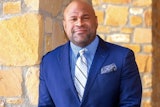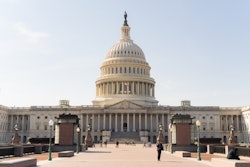TOPEKA, Kan.
Dr. Bernadette Gray-Little, a top University of North Carolina official, will become the first female and first Black chancellor at the University of Kansas.
Gray-Little, 64, was appointed Friday by the Kansas Board of Regents from among three finalists to succeed Robert Hemenway, who has led the state’s largest university since 1995. She will be installed Aug. 15 as the university’s 17th chancellor.
The appointment completed the regents’ task of finding new leaders for three of the state’s universities. Gray-Little is the first African-American to lead a state university in Kansas and the second woman to do so, after Kay Schallenkamp, who was Emporia State University president in 1997-2006.
The regents announced Gray-Little’s appointment after holding closed meetings Thursday and Friday. Board members said her academic and administrative credentials put her at the top. Salary talks continue but Hemenway’s annual pay was about $267,000.
“We found her unassuming but very powerful,” said regents Chairwoman Donna Shank.
Gray-Little called the University of Kansas “a place of high quality and high aspirations.”
“There is a sense of place and a sense of tradition,” she said. “I look forward to getting started.”
Gray-Little has been executive vice chancellor and provost at the University of North Carolina at Chapel Hill since 2006 and previously served as dean of its College of Arts and Sciences. As a faculty member she was a professor of psychology.
The new chancellor said her priorities will be improving graduation rates, increasing fundraising and getting National Cancer Institute accreditation for the school — something that’s already happened at North Carolina.
“It just seemed like a wonderful opportunity to come into this role as chancellor and to participate in helping the university to reach the goals it has set and to move it to its next level in terms of excellence,” she said.
Shank said Gray-Miller’s goal of increasing fundraising is even more important in tough economic times, when it’s going to take more than tuition increases to make up for a state revenue shortfall.
“The goal is to pick the right person, the best person, and in this case we got lucky all the way around — the right person, the best person, who happened to be an African-American woman,” Shank said. “She’s a star where’s she at and she going to do great things at the University of Kansas.”
Gray-Little said she would let others comment on the symbolism of her appointment, but added, “I think that’s happening more and more around the country and it’s about time.”
Regent Gary Sherrer said, “This wasn’t a blow for symbolism. This is about a woman who has exceptional leadership talents.”
Sherrer said he was impressed by Gray-Little’s “quiet strength.”
“She’s really unique in that she leads because of what she wants to accomplish, not because of an ambition to lead,” he said.
Hemenway announced his retirement in December but will return to the classroom next year as a professor.
“I congratulate Dr. Gray-Little on being selected for the best job in the world,” Hemenway said. “KU will be in good hands.”
Gray-Little holds a master’s degree and doctorate in psychology, and she served as a psychology professor at the University of North Carolina before becoming director of its graduate program in clinical psychology and, later, head of its psychology department.
In February, the regents picked Kirk Schulz as Kansas State University president, replacing Jon Wefald, who held the job for 23 years. In May, Steven Scott was picked as president of Pittsburg State University, replacing Tom Bryant, who retired after nine years. Scott had been the university’s provost and vice president for academic affairs. Both begin July 1.
© Copyright 2005 by DiverseEducation.com















